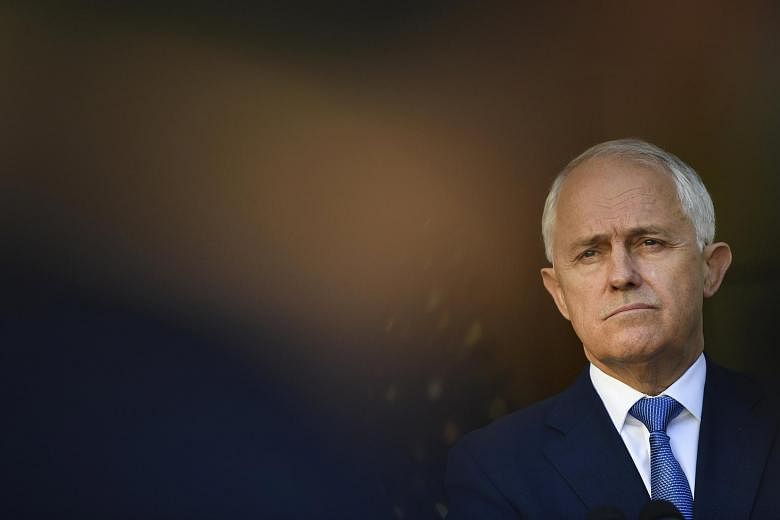BEIJING (Bloomberg) - China summoned Australia's ambassador in Beijing amid friction between the two nations after Prime Minister Malcolm Turnbull's government accused the Asian powerhouse of political meddling.
Ambassador Jan Adams was called in by China's Ministry for Foreign Affairs on Dec 8, while three days later China's ambassador to Australia held talks with the Department of Foreign Affairs and Trade.
Ties have been strained since Australia last week introduced laws to crack down on interference by overseas powers, banning foreign political donations and toughening up definitions of treason and espionage.
Mr Turnbull singled out China's influence when his government pressured opposition Senator Sam Dastyari to quit over his ties with a Chinese businessman who has links to the Communist Party.
Other Western nations, including the United States, United Kingdom and Germany, have expressed concern about Chinese spying and propaganda activities. But the stakes for maintaining cordial ties with Beijing are higher for Australia, which is the most China-dependent developed economy. Chinese demand for iron ore and coal has helped power Australia's 26-year run of recession-free growth.
Mr Turnbull's so-called foreign interference legislation, which is yet to pass Parliament, will require people or organisations acting in the interests of foreign powers to register and disclose their ties.
He has denied the legislation is targeted at any one country, but said earlier this month the case of Senator Dastyari was a prime example of Chinese influence in Australian politics.
The former Labor senator was recorded in June 2016 defending China's military build-up in the South China Sea, contradicting government policy and that of his party. Mr Dastyari's credibility also came under attack after he acknowledged a Chinese company had paid a A$1,670 (S$1,720) travel bill, and that he had warned a Chinese businessman that his phones were being tapped by Australian intelligence agencies.
"Senator Dastyari solicited money from a Chinese national," Mr Turnbull said on Dec 5. "It was about as blatant an act of political interference that you could imagine."
China has criticised the proposed legislation, with its embassy in Canberra saying that some politicians and officials had "made irresponsible remarks to the detriment of political mutual trust between China and Australia".
The nation also hit out last month after Australia published its foreign policy White Paper and warned of "the unprecedented pace and scale of China's activities" in the South China Sea.
Chinese foreign ministry spokesman Lu Kang labelled the comments as "irresponsible".
In publishing the paper, Mr Turnbull acknowledged the tightrope that Australia walks, between supporting its main security ally, the US, and its biggest trading partner, China.
"This is the first time in our history that our dominant trading partner is not also a dominant security partner," said Mr Turnbull.

